
We kindly inform you that, as long as the subject affiliation of our 300.000+ articles is in progress, you might get unsufficient or no results on your third level or second level search. In this case, please broaden your search criteria.

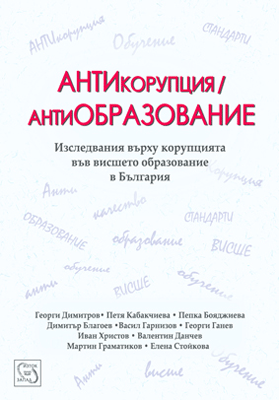
1. The corruption in higher education – forms and institutional prerequisites 2. Breath and depth of the academic corruption spread (An analysis of the focus-groups’ information) 3. The symptomatic institutional silence (An interpretation of the experts’ opinions) 4. The stake in belittling the problem (The case of the “University of Veliko Turnovo” – an analysis of the official publications) 5. Bulgarian “DIPLOMA MILLS” 6. Some normative problems of legal regulation of the academic life
More...
1. Sine qua non macro-structural terms 2. Specific policy measures in the education system
More...




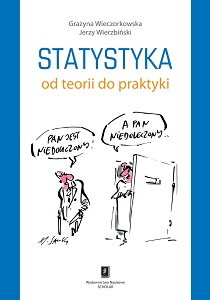
Czym różni się ta książka od innych podręczników statystyki? Autorzy książki, prof. dr hab. Grażyna Wieczorkowska i prof. dr hab. Jerzy Wierzbiński, którzy od wielu lat uczą statystyki studentów psychologii i zarządzania, napisali podręcznik dla osób niemających przygotowania matematycznego. Niczego nie tłumaczą na wzorach – wszystko na pobudzających wyobraźnię przykładach.Autorzy prowadzą Czytelnika od podstaw statystyki opisowej, przez sugestywne przykłady pokazujące istotę wnioskowania statystycznego, do krainy współzależności wielozmiennowej, gdzie zmienne kontrolowane pełnią role mediatorów lub modyfikatorów (moderatorów) związków dwuzmiennowych. Podróż przerywają wymuszone postoje, podczas których Czytelnik proszony jest o utrwalenie nowych pojęć i wzorów przez wykonanie prostych obliczeń. Książkę należy czytać aktywnie – zapełniając pozostawione przez autorów puste pola.Statystyka w podręczniku jest traktowana instrumentalnie – jako narzędzie pomagające odpowiadać na ciekawe pytania badawcze. Wykonując proste ćwiczenia zawarte w książce, początkujący Czytelnik nauczy się, w jaki sposób formułujemy i testujemy hipotezy, na czym polega istotność statystyczna, jak i kiedy zastosować różne testy. Bardziej zaawansowanych Czytelników zainteresuje zagadnienie metodologicznej hipokryzji, centrowanie i ipsatyzacja wyników, testowanie interakcji za pomocą analizy regresji, zastosowanie analizy czynnikowej do budowania indeksów złożonych, porównanie analizy wariancji, kowariancji i regresji. Wszyscy zyskają wiedzę o pułapkach badań sondażowych i niebezpieczeństwach wynikających z nieznajomości ograniczeń badań korelacyjnych. W czasach, gdy podejmujemy decyzje dotyczące naszego stylu życia na podstawie publikowanych w prasie wyników badań naukowych, wiedza ta jest bezcenna dla każdego.
More...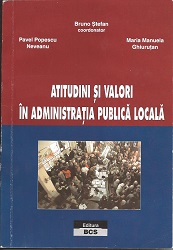
The book analyzes the Romanian public administration in 2001, a few months after its inauguration following the elections, and measures the tools of sociology and psychology (opinion polls among citizens, mayors and counselors, focus groups, psychological tests, interviews in depth) personality traits, values, behaviors and attitudes that exist and are desirable. In 2001 the book offered the first major psycho-sociological diagnosis of the administrative phenomenon in Romania.
More...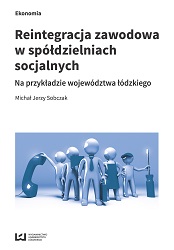
Spółdzielnie socjalne to jeden z rodzajów podmiotów gospodarki społecznej, który został wprowadzony do polskiego porządku prawnego w 2004 r. w celu przeciwdziałania wykluczeniu społecznemu. Organizacje te zalicza się do narzędzi aktywnej polityki rynku pracy, gdyż poprzez zatrudnienie osób zagrożonych ekskluzją społeczną dążą do ich reintegracji społeczno-zawodowej. Ma to na celu poprawienie zatrudnialności spółdzielców na otwartym rynku pracy w dalszych etapach ich karier zawodowych. Spółdzielnia socjalna to przedsiębiorstwo, które może działać w różnych branżach i konkurować z innymi podmiotami rynkowymi. Nie może jednak dobrowolnie dobierać pracowników, gdyż w większości muszą to być osoby z różnych powodów zagrożone wykluczeniem społecznym. Prezentowana monografia została napisana na podstawie badań weryfikujących skuteczność spółdzielni socjalnych w wypełnianiu ich głównego celu ustawowego, jakim jest reintegracja zawodowa osób zagrożonych wykluczeniem społecznym. Jest to interesujące studium stanu rozwoju spółdzielczości socjalnej w Polsce po dziesięciu latach od zaistnienia tej formy działalności w gospodarce.
More...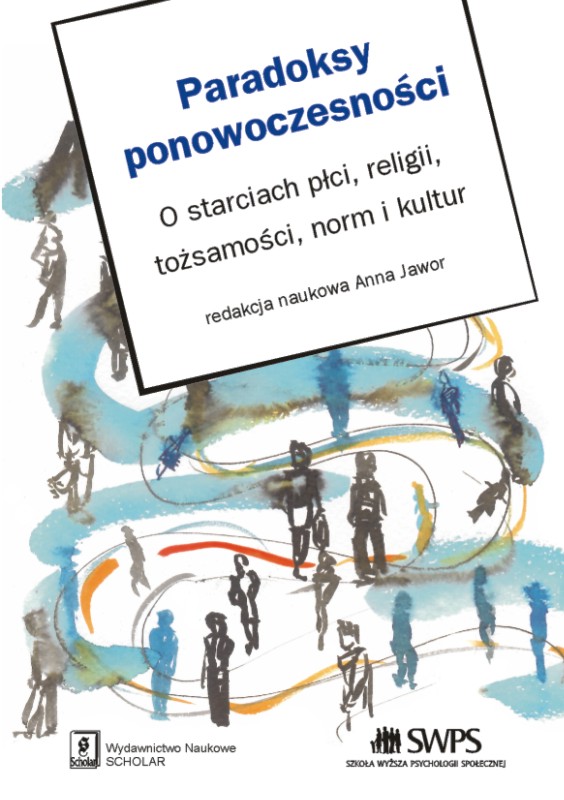
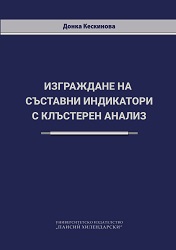
The monograph is a result of the doctoral study on "Problems and Approaches in the Application of Cluster Analysis for the Construction of Composite Indicators in Sociology". For the first time in Bulgaria this book explores the possible solutions in the methodology of the classical methods of cluster analysis, their consequences for the results of the analysis; additionally, it presents and systematizes the reasons to prefer one solution to another. This provides an opportunity to construct an adequate strategy for the application of the analysis so as to solve a specific research task in the social sciences.Two types of classifications in sociology are justified - based on a typological composite indicator and empirical typology. Approaches have been developed to construct a composite indicator (variable) through cluster analysis that allow for a more effective reduction of information in empirical sociological research and its use to reveal relations and dependencies.The research in the monograph also contributes to the discussion of issues in cluster analysis methodology as they relate to the efficiency of clustering methods, Ward method's proximity measures, the proximity measures used for binary variables; the use of standardization of variables; how to sort the cases in the database, among others.
More...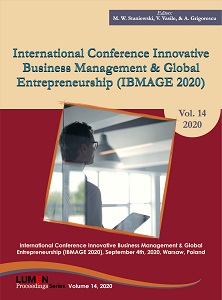
The development strategy of a modern state is oriented towards ensuring economic growth, increasing the well-being of citizens and reducing the level of poverty. The COVID-19 pandemic had a negative impact on national economies, including the economy of the Republic of Moldova. That is why, the assessment of well-being, identify impact factors, the elaboration of recommendations for increasing well-being become current. Contemporary approaches to quantifying well-being focus on both the economic and social spheres. In this study are identified the weaknesses and strengths of the well-being indices, the dynamics of two composite welfare indices have been analyzed. In the research process, the influence of different factors was identified and their influence on the well-being of citizens and living standards was estimated. Applying the method of correlation and regression analysis, and using the software Eviews 9 were developed two multifactorial linear regression models: a model of the well-being and a model of living standard of population of the Republic of Moldova. Based on the analysis of the pillars of the Legatum Prosperity Index and the components of the Social Progress Index, priority sectors were identified, such as: health care, education, economic quality, enterprise conditions, environmental quality. At present, it is necessary to promote strategies to ensure sustainable economic growth, which will inevitably lead to an increase in the well-being of the local population.
More...
The new coronavirus (Covid-19) is one of the main challenges world today has to address. With no large scale availability vaccine yet, and more or less experimental medical treatments for curing the disease, we can safely say that we are still far behind a solution to this problem. This new pandemic is considered the biggest threat to the global economy since the Second World War and there is no aspects of human life have not been affected it, spiritual ones included. Its high contagiousness, as well as novelty, raised all kind of challenges and one of the main ones was our manner to produce answers, in early stages at least, this creating problem on its own and of its design. As well as all the other institutions, theatres, cinemas, concert halls, spaces of socialization and in the same time places of wonder, knowledge and spiritual enrichment the museums were heavily affected by the pandemic crisis, especially those who’s collections are not, but in very small proportion available, to the public through virtual media. Such a case is „Princely Court„ National Museums Ensemble from Targoviste, Dambovita County, Romania. The present paper proposes an overview of the highlights in institution′s activity the past years in comparison with how the pandemic crisis affected its activity in the past months and what were the responses given to keep the museum in the eye of the public. It will also try to summarize how and to what extent the activity went back to „normal” after the emergency state earlier imposed was lifted and how the visitors responded to the new realities.
More...
23-27 noiembrie 2020
The survey was conducted on 1960 subjects and measured the intention to participate in parliamentary elections, the option to vote, confidence in political leaders, opinion on certain issues of public interest.
More...
Romania is going through a period of economic transition, subject to the pressures of globalization that affect the evolution of the family, at the micro social level, structurally, from the behaviour and relational point of view. The continuous process of changes in the labour market, the inefficiency of the association between vocational training and job satisfaction, the financial difficulties felt by most families but also the challenge of modernity have emphasized the phenomenon of migration in the last decade. The departure of parents who have to work abroad has become a worrying phenomenon with a higher incidence in the eastern half of the country. It has got complex effects on the evolution of the family, especially on the children left at home with one of their parents or their tutors. Nowadays, the studies show more and more situations of neglect in which children become victims and suffer emotionally and physically. They also suffer various abuses, they are exploited through work or sex. In schools, there is a new profile of special educational requirements (not deficiencies), the profile of children left at home without parental support. It is worrying the migration phenomenon seen as a value model by the young generation and its negative effects at school level: decrease of motivation for learning or school abandonment. The present study discusses a review of the current scientific literature objectively, which examines the impact of breaking attachment relationships between children and parents on socio-emotional development and school outcomes. The Romanian society knows an important socio-economic phenomenon, which has grown since 1990: migration. In 2017, a study carried out at the request of the Romanian Government recorded more than 85,000 children left home alone with one of the parents or without parental supervision. We aim to analyse what effects at school and socio-emotional level have the loss of attachment ties having as moderators the gender of the migrant parent, the duration of the separation, the age at which the separation occurs. When these relationships are interrupted, the child’s emotional development is affected, his emotional balance having repercussions in his social life. The purpose of this study is to identify, monitor the dimensions of the phenomenon in intensely affected areas (Braila and Galati counties), the psycho-pedagogical aspects of children with migrant parents exposed to situations of vulnerability, marginalization and to propose a program of educational strategies in order to optimize school motivation. The main objective of the research is to identify, evaluate and involve them into adaptive actions that have as their objective the rebalancing of the socio-affective relations
More...
This article addresses the topic of conditional parenting, and it focuses on analyzing the relationship between parenting and the school activity of the student at the level of primary education.Conditional parenting, which provides the child with conditional love and self-esteem, it stands out by: focusing on the child's behavior, considering that human nature is negative and parental love is a privilege that must be earned, also being the adept of punishments and rewards.Conditional love entails the parent's desire to have an obedient child, obedience being the basis of control.`How could an obedient and conditional loved child develop competencies for the future? How well will he meets the demands of today's school or how will he relate to the faculty? These are the questions that have guided the approach of the whole mixed type research, that has been carried out over a period of half a year, using the following methods: questionnaire based survey and focus group method.Through this research, conclusions were drawn regarding conditional parenting and its influence on school activity of the pupil in the primary cycle.Starting from the interpretation of the research results, it was highlighted that the relationships between children and parents based on safety and unconditional love have contributed to the harmonious development of the child and to the skills for the future, through school.
More...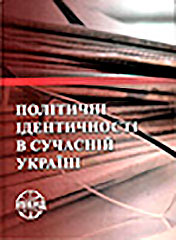
The research deals with the study of one of the most difficult phenomena – political identities in modern Ukraine. The analysis is carried out on the bases of political identities study (individual and collective) in urban community in such Ukrainian sites as Donetsk, Odessa, Poltava, Chernivtsi and Chernihiv. Taking into account the historical background, socio-cultural and economic context, the factors that have an impact on the transformation of Ukrainian citizens’ political identities are distinguished and examined. Involving a large amount of empirical data, the political identities subjects, the peculiarities of each of the urban community are analyzed, the valuable basis of political identities in Ukraine is found out.
More...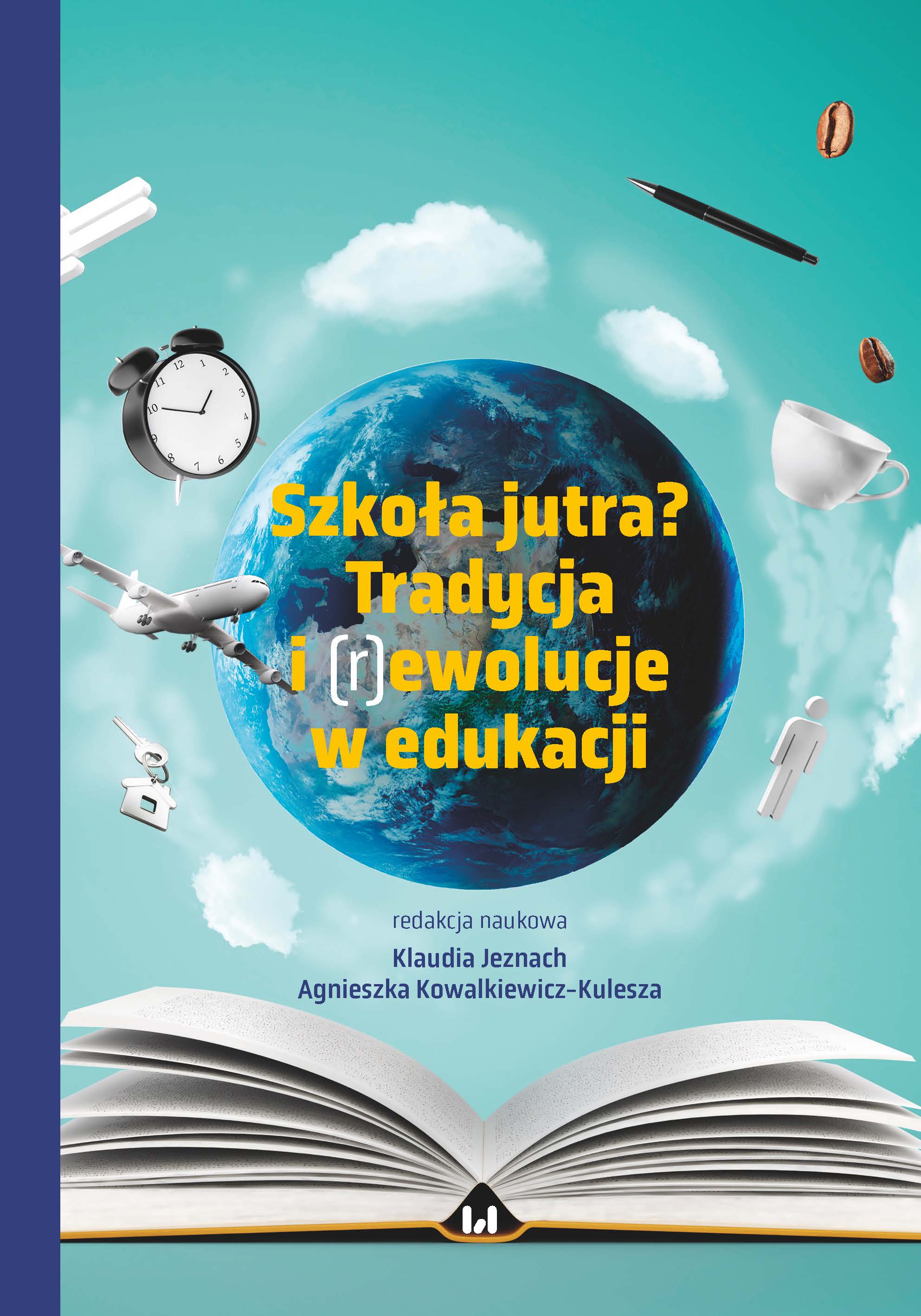
This publication is the fruit of in-depth reflections, the effect of extensive observations of the school and students, showing various research perspectives. The multidimensionality of the issues presented by the authors makes us realize how many challenges, but also opportunities, appear before every person working with children and youth. The topics of the articles concern elements of psychology and therapy in education, distance learning, space at school, practical teaching solutions and verification of competences.
More...